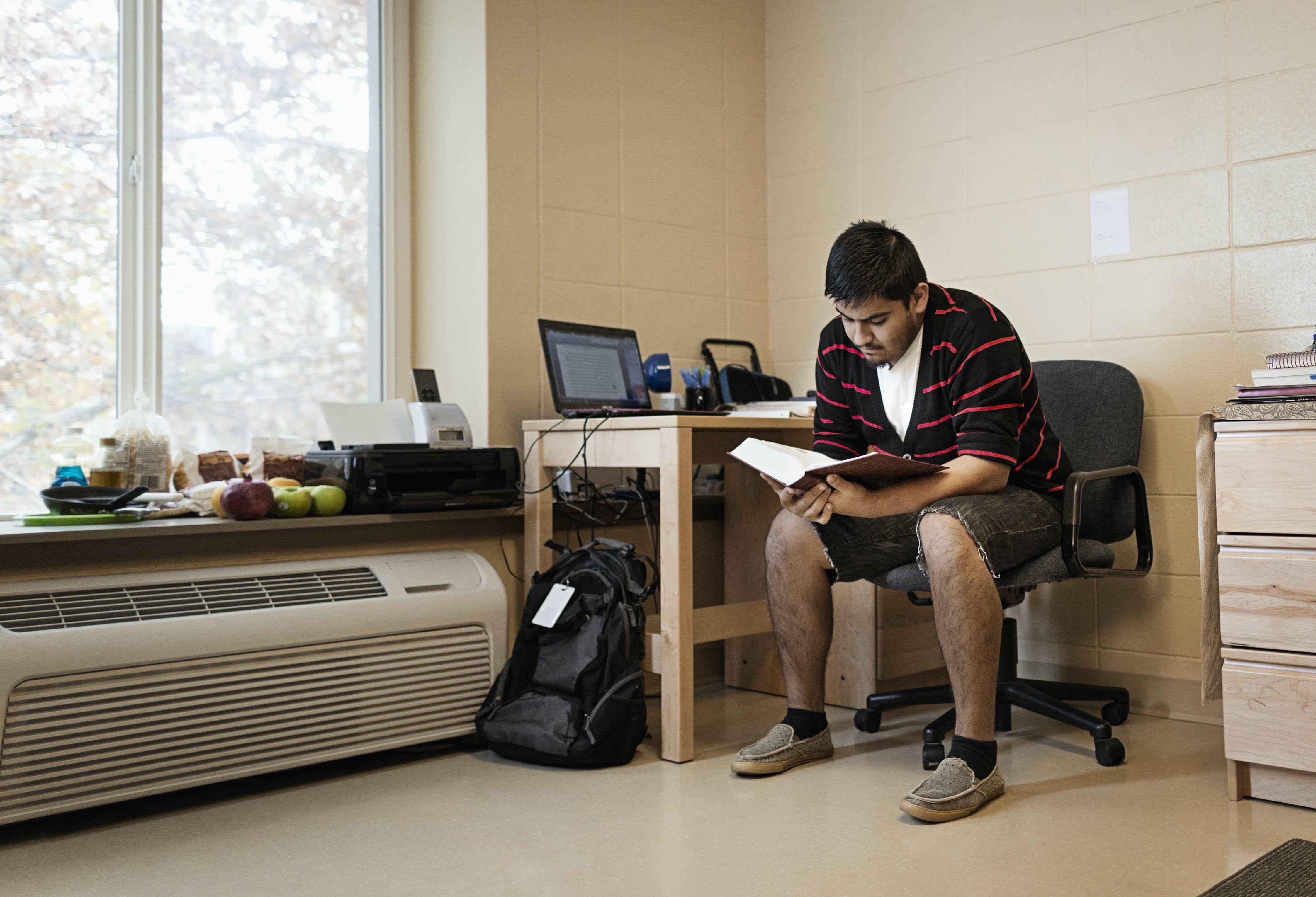
Australia’s future as a destination for international students

At the end of a challenging year, it’s time to take stock of the impacts COVID-19 will continue to have on Australia’s reputation as a destination for higher education
Published 2 December 2020
Melbourne residents who lived under Victoria’s strict lockdowns – to date, amongst the toughest and longest worldwide – know that it was a long, hard slog.
Studies have already shown that the lockdowns impacted our mental health and that, while challenging for all, these impacts were also uneven.

Those already disadvantaged and lower income earners were the hardest hit. And this includes many university students – particularly international students.
Marilyn* left her home in Southeast Asia to study a Masters degree at the University of Melbourne. It was her first time living overseas, far away from her family and friends.
Like many students in Melbourne, Marilyn chose modest, one-room accommodation to fit her budget. She gave up a good job back home and, instead, invested all her savings in her degree.

During COVID-19 lockdowns, she struggled financially, was unable to focus on her studies and became severely depressed. She felt too ashamed to tell her family about her situation. She had a hard time explaining that she could no longer even do the most basic things – get out of bed, shower or cook.
But, like many other international students this year, she reached out to teaching staff for help.
Marilyn is one of over 560,000 international students who, along with other temporary visa holders, have been excluded from the Federal Government’s COVID-19 response.
Her story is far too common.

A recent survey by members of our Myanmar Research Network reveals that international students have faced significant financial, educational and mental health challenges due to COVID-19 related restrictions and lockdowns.
Of the sixty students from Myanmar surveyed, more than three quarters described negative impacts on their ability to support themselves financially during their studies in Australia. These financial impacts were most commonly linked to the lack or loss of part-time and casual employment, upon which many international students rely to support themselves.
Echoing the words of many others, one student explained: “I can’t get any job due to COVID-19. I have so much stress and worries about hostel fees and other daily basic costs.”

Politics & Society
What about those left out by the stimulus package?
And another said: “I’m finding it difficult to pay for food… I needed to borrow $A2,500 to pay school fees in order to keep studying.”
Approximately 40 per cent of students surveyed by the Myanmar Research Network applied for at least one kind of assistance or support, mainly from their universities or from the state government.
Of those who applied for assistance, only around 50 per cent were successful.
One of our student network members described repeated attempts at applying for assistance over a six-month period, only to be told he was ineligible because of a lack of documentation from his home country.
Long wait times and difficulties with applications were an added source of stress, at a time when he had used up his savings and could barely support his wife and children. This student did eventually succeed in obtaining small pots of funding from state government and private sources, after months of trying.

But many others were not in a position to be so persistent.
Although universities, as well as the Victorian Government, did provide emergency relief for international students, there are significant gaps in awareness of the different types of support available.
Many students reported that they were unaware of the assistance available to them. Students also faced significant difficulties in applying for assistance, as they often didn’t have the documentation or information required to navigate complex bureaucratic systems.

Business & Economics
Casual work and COVID-19
The transition to online teaching and learning also created challenges for international students. Many mentioned struggling with online learning, suffering from a lack of access to resources and dealing with associated mental health concerns.
One student explained: “Teaching moved online, which we were very unfamiliar with and didn’t like. Also, I don’t have a computer which made it difficult”.
Several students described how feelings of “being closed within four walls has taken away my motivation to study”. And many had concerns like “increased mental stress”.
For international students who, like Marilyn, never anticipated their studies in Australia would be online while locked away in temporary accommodation, unsuitable remote working environments made online learning difficult.

The lack of social contact also contributed to mental health concerns and financial troubles added to their stress and difficulty in continuing with coursework.
While universities ramped up their free counselling services during COVID-19 lockdowns, many international students still remain unaware of the services available.
Others, like Marilyn, explained that they have no previous experience of counselling and fear that, if they seek help, they will face stigma and negative impacts on their academic record – a further indication that more targeted outreach and information about support and services for international students is needed.

Business & Economics
Who’s hit hardest by the COVID-19 economic shutdown?
Although this survey and parallel consultations focused on students from Myanmar, the experiences of these students are illustrative of the difficulties faced by many international students more generally during the pandemic.
The long-term impacts of COVID-19 mean that international students cannot be sustained by one-off emergency grants offered by many universities and by the Victorian Government’s emergency support package.
Having been excluded from Federal Government assistance schemes, many stranded and desperate international students across Australia have had to rely on charity and community networks to survive.
The experiences of international students during the COVID-19 pandemic have risked tarnishing Australia’s reputation and competitiveness as a destination for higher education.

During consultations with Myanmar Research Network members, some students described already advising their contacts back home not to study in Australia in the future, due to their own negative experiences. Students also reported feelings of disappointment and anger at the lack of Federal Government support for international students.
Despite recommendations from peak group Universities Australia, the new Federal Budget doesn’t include hardship support for international students.
Universities – already facing massive financial shortfalls and job losses – have been left with the mammoth task of supporting existing students, while trying to deal with dramatic projected losses in future enrolments.

Health & Medicine
The young Australians hit hard during COVID-19
If the situation doesn’t change, there is a serious risk that future international students will be dissuaded from studying in Australia – something that has been highlighted in other investigations.
This could have severe, wide-ranging and long-term impacts on Australia’s economy, which is highly dependent on international students.
If Australia’s reputation as a destination for higher education is to remain, Federal Government COVID-19 support needs to be extended to international students who remain in Australia.
With the global pandemic far from over, universities also need more government support to provide better adapted outreach and care for international students like Marilyn, whose dreams of enjoying their studies in Australia were shattered by COVID-19.
*names have been changed
Dr Anne Décobert and Dr Vanessa Lamb are Steering Committee members of the University of Melbourne’s Myanmar Research Network.
Banner: Getty Images

